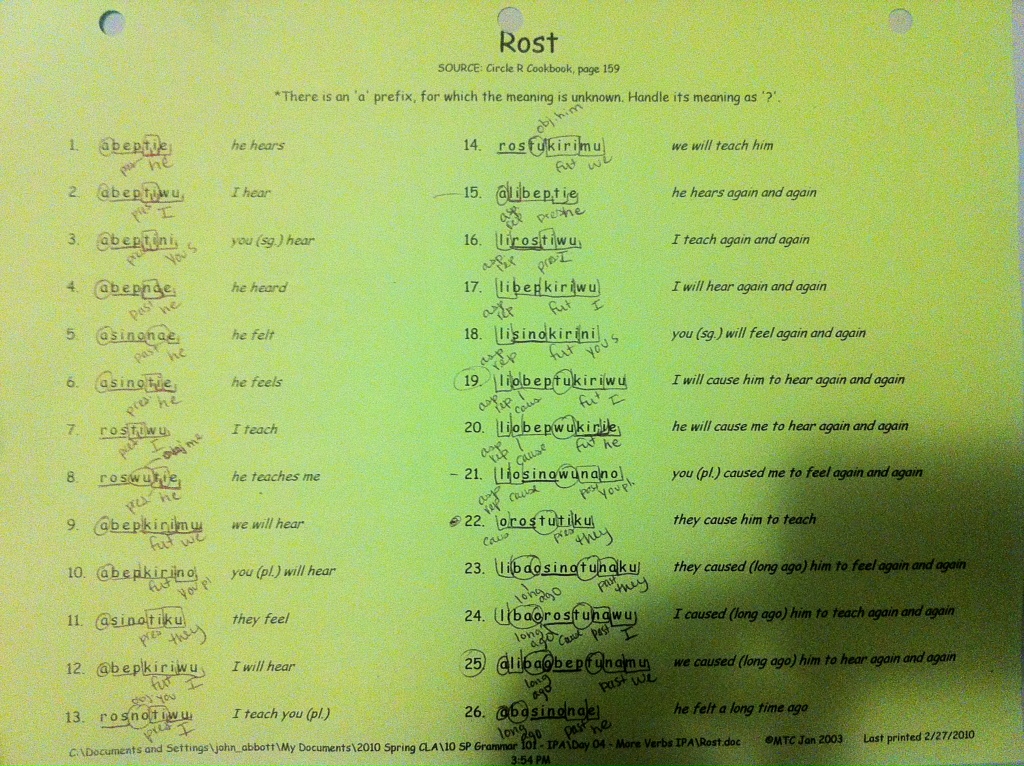
We just started our grammar class last week, and it’s been a lot of fun so far! If that statement sounds impossibly weird to you, keep reading! This class isn’t about English grammar, it’s concerned with tribal grammar…and things work a little bit differently. We’ve been breaking down tribal words and figuring out what each part (a.k.a. morpheme) means…it’s sort of like doing linguistic sudoku…so if you like puzzles, you’d love tribal grammar!
In most of these languages, the person doing the action isn’t the subject. Life isn’t a series of causes, it’s a series of experiences. The object experiencing the action usually gets the focus. If I said, “Jack found the pig,” the subject to them would be the pig. Journalism school beat the passive voice out of me and now I’m having to rethink everything!
Today we learned about “predictable allomorphs”, and no, that’s not an insult you hurl at your biology teacher. Here’s an English example of some predictable allomorphs:
impatient, imbibe, impossible
indescribable, indecent, indesposed
Any ideas why these prefixes are predictable? “in” and “im” have the same meaning, so why do we need different spellings? This one has to do with how our mouths make sounds. In the first group, to make a “p” or “b” sound, we put our lips together. We do the same thing with the “m” right before, so it’s natural to use the “m” rather than the “n”. In the second group, we make the “n” and “d” sounds by placing our tongues on the ridge just behind our teeth.
Try saying “imdecent” or “imdescribable”….it’s just a little weird.
So a tribal language might have several different spellings for a prefix that means the same thing, it just depends on the sounds that are next to it.
So that’s a snap-shot of grammar.
Leave a Reply